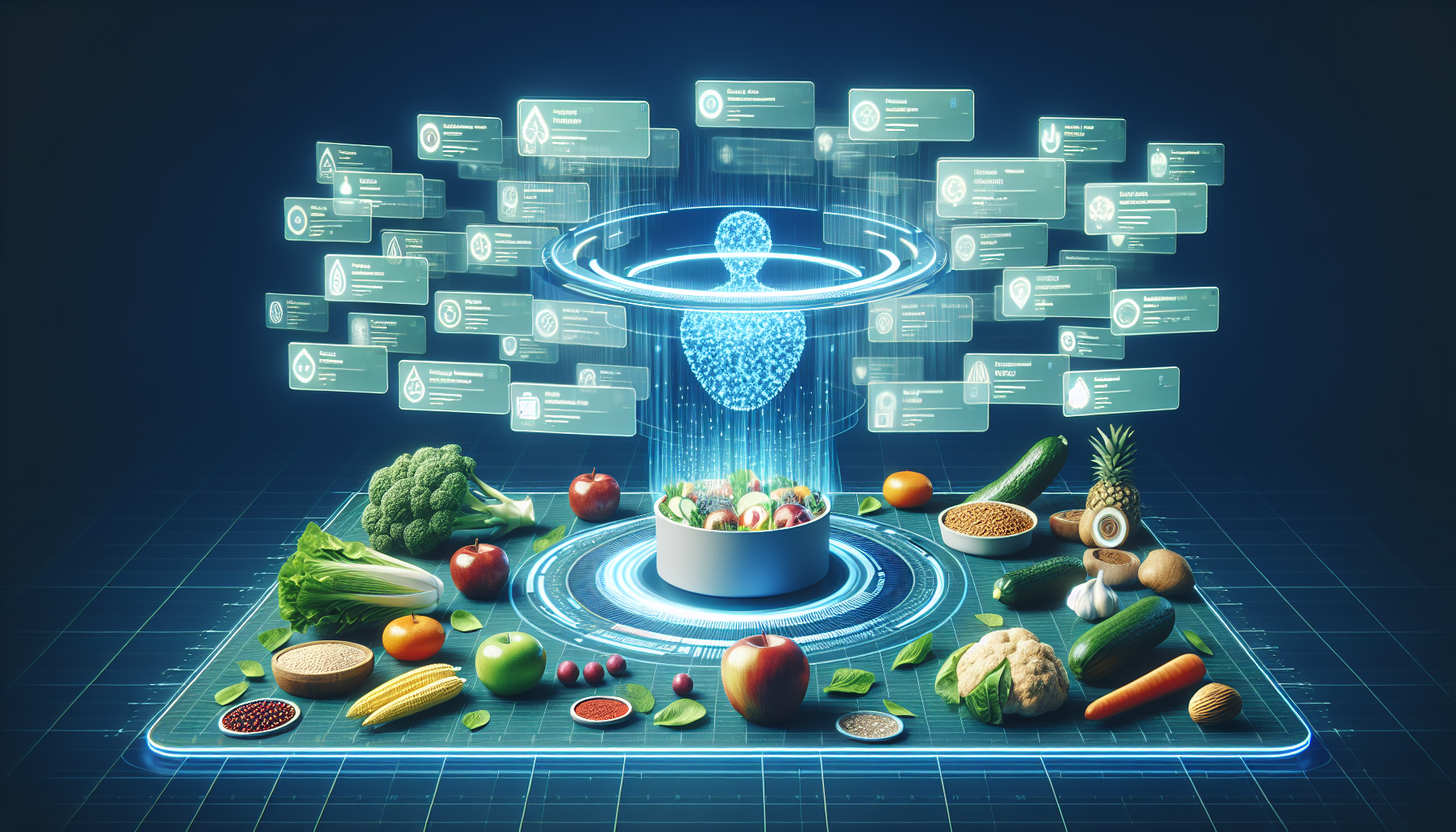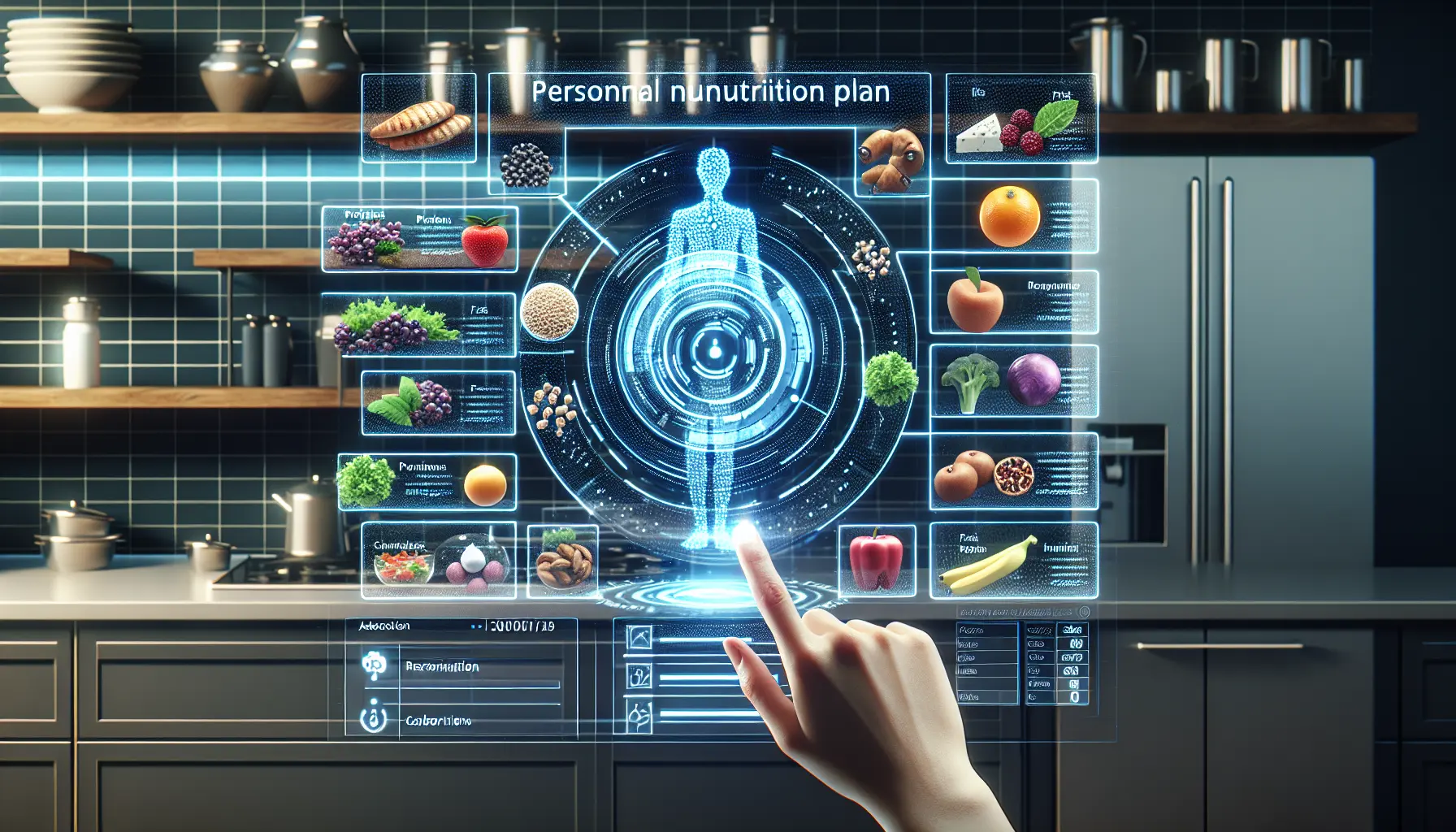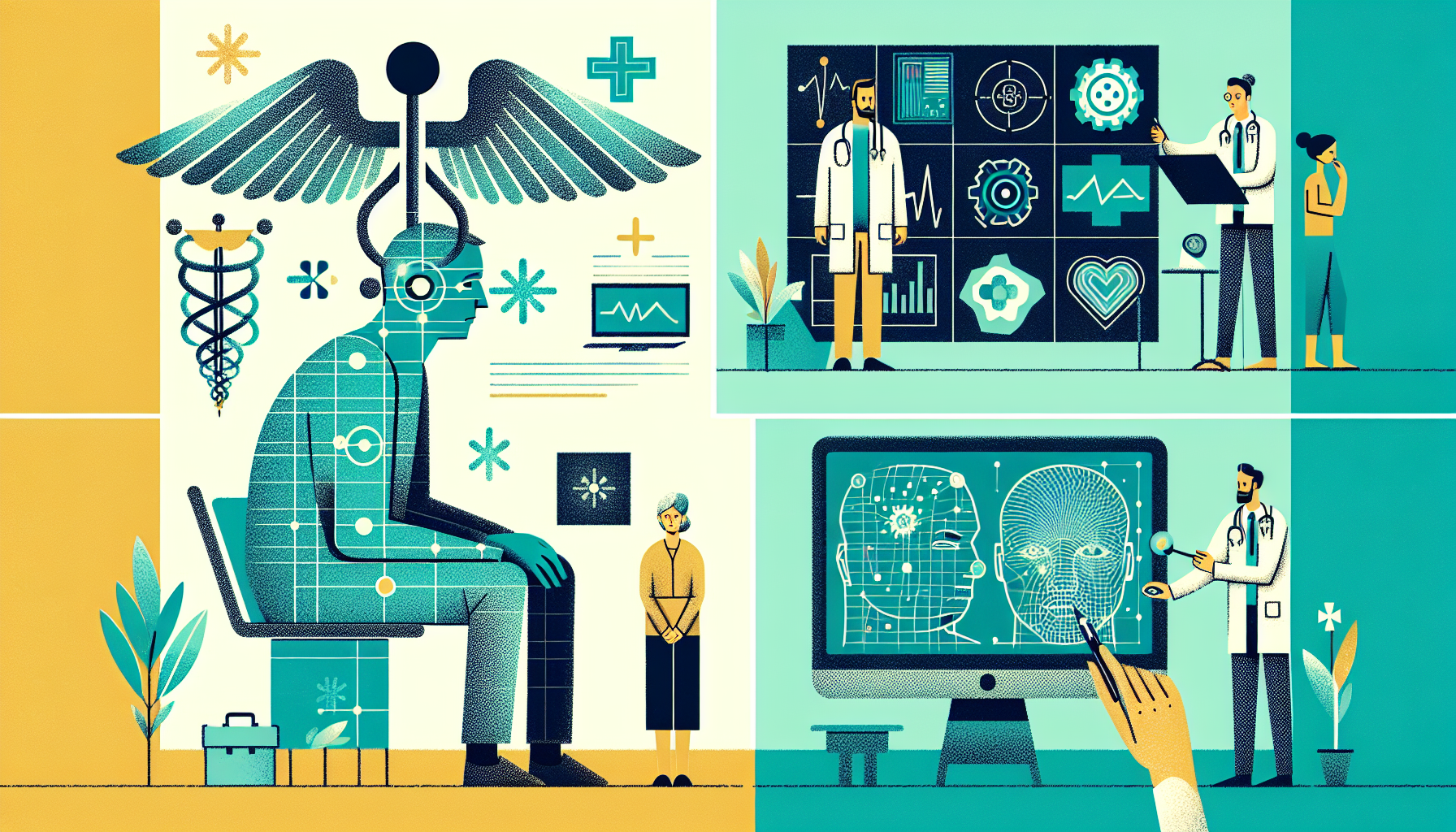GEN-AI
Integrating Artificial Intelligence into Nutrition Practice: Enhancing Client Outcomes and Streamlining Dietetic Services
Integrating Artificial Intelligence into Nutrition Practice: Enhancing Client Outcomes and Streamlining Dietetic Services

Introduction
Imagine sitting down to plan a perfect diet for your client. You have mountains of data—dietary preferences, medical history, nutritional needs—all spread across your screen. However, one tool stands out, wisely observing patterns and recommending strategies you hadn’t even considered. That tool is artificial intelligence (AI). In the dynamic field of nutrition, AI is transforming dietetic services, enhancing client outcomes, and revolutionizing the way we approach dietary management. This blog explores how AI can streamline nutrition practices by providing personalized nutritional advice and enabling dietitians to make more informed decisions, optimizing client health outcomes through innovation and precision.
The Promise of Artificial Intelligence in Nutrition
AI: The New Frontier for Dietitians
Once solely the realm of science fiction, AI is now an exciting frontier for dietitians seeking to enhance their practice. This technology holds the promise of more efficient data analysis, personalized nutrition plans, and improved care quality. According to a study published in Frontiers in Nutrition, AI-based dietary assessment tools are pivotal in navigating next-gen nutrition care, improving overall treatment quality.
"Integrating AI into dietetic practice transforms how we approach nutrition, allowing for precise, data-driven decisions and personalized client strategies." — Nutrition Expert
Revolutionizing Dietary Assessment
Nutritionists know the complexities of accurately assessing dietary intake. Traditional methods often rely on self-reports, which can be prone to inaccuracies and biases. AI, however, brings a level of precision that transcends these limitations. By analyzing complex data and automating dietary assessments, AI systems provide a more nuanced view of an individual's dietary habits. As noted in an article from MDPI, AI can improve nutrition assessments, ensuring that dietitians have access to accurate and actionable insights to shape client care.
Enhanced Personalization with AI
Personalization is at the heart of effective nutrition strategies. Everyone’s dietary needs are unique, shaped by genetic predispositions, lifestyle, health goals, and even psychological factors. AI aids in crafting tailored nutrition plans by processing large datasets and drawing connections that may not be immediately apparent to the human eye. This capacity for personalization is a game-changer, optimizing dietary recommendations for enhanced client outcomes.

Streamlining Dietetic Services with AI
Efficiency in Meal Planning
Meal planning can be a time-consuming process requiring a fine balance of macros, micronutrients, dietary restrictions, and preferences. AI simplifies this task by quickly generating meal plans that meet these specifications. By leveraging algorithms that account for nutritional value and user preferences, dietitians can provide clients with well-rounded meal plans swiftly and accurately.
An article from Science Direct further dives into AI’s potential in analyzing dietary data and automating aspects of clinical nutrition, empowering dietitians to focus more on client interaction and less on manual data manipulation.
AI-Driven Client Engagement
A successful dietetic practice hinges on client engagement and adherence to nutritional plans. AI-powered applications enhance engagement by providing clients with interactive tools, reminders, and progress tracking. Gamified experiences and interactive platforms—offered by innovative SaaS solutions like UnifyCulture in areas beyond nutrition—encourage clients to stay motivated and committed to their nutritional goals.
Real-Time Feedback and Adjustments
One of the standout features of AI in nutrition is real-time feedback. Dietitians can receive timely insights into how clients respond to their meal plans, allowing for immediate adjustments where necessary. This level of adaptability ensures that diet plans can be as dynamic as the client's needs.

Practical Applications and Case Studies
Personal Success Stories
Consider Sarah, a busy professional who struggled with maintaining a balanced diet due to her hectic schedule. Using an AI-powered nutrition app, her dietitian was able to craft meal plans that fit Sarah’s lifestyle while providing personalized recommendations. The app tracked Sarah's dietary habits in real time, providing feedback and suggestions, which led to improved health outcomes and greater dietary adherence.
"AI allowed me to tailor my approach to every client's unique needs, offering actionable insights that manual methods simply can't deliver." — Registered Dietitian
Transformative Case Studies
In broader settings, healthcare institutions utilizing AI-driven nutrition interventions have reported significant improvements in patient outcomes, from better-managed diabetes care to enhanced recovery times post-surgery. By integrating AI with traditional dietetic practices, these organizations have optimized their service delivery, demonstrating the transformative potential of AI in nutrition.

The Future of Nutrition Practice with AI
Embracing Technological Innovation
As AI continues to evolve, its role in nutrition practice will only expand. Emerging technologies promise even greater precision, efficiency, and personalization, driving better client outcomes and more streamlined dietetic services. Dietitians embracing AI now are not just improving their current practice—they are positioning themselves at the forefront of the evolving nutrition landscape.
Overcoming Challenges
Despite its promise, integrating AI into dietetic practice does come with challenges. Issues such as data privacy, the need for technological literacy, and initial integration costs must be addressed. However, as AI technologies become more accessible and widely accepted, these challenges are likely to diminish.
Preparing for Change
Dietitians looking to stay ahead of the curve should focus on technological proficiency and openness to integrating AI into their existing practice models. Continuous education and collaboration with tech developers can also play a pivotal role in harnessing the full potential of AI in nutrition care.
Conclusion
AI is more than just a tool—it is a catalyst for change in the field of nutrition. By enhancing client outcomes, streamlining dietetic services, and offering unprecedented personalization, AI paves the way for a new era of nutrition practice. As we continue to navigate this exciting intersection of technology and health, one thing is certain: AI’s role in nutrition will only grow, leading to healthier, more informed possibilities for our clients.
"The integration of AI in dietetics is just the beginning. The future holds endless possibilities for improving nutrition care and client health through innovative technology." — Health Tech Visionary
With the power of AI, the potential for optimizing nutrition practices is limitless. Embrace the change, harness the technology, and witness the transformative impact on your practice and your clients' lives. For more insights on how digital technologies are revolutionizing nutrition and dietetics, explore further with these scientific articles.
